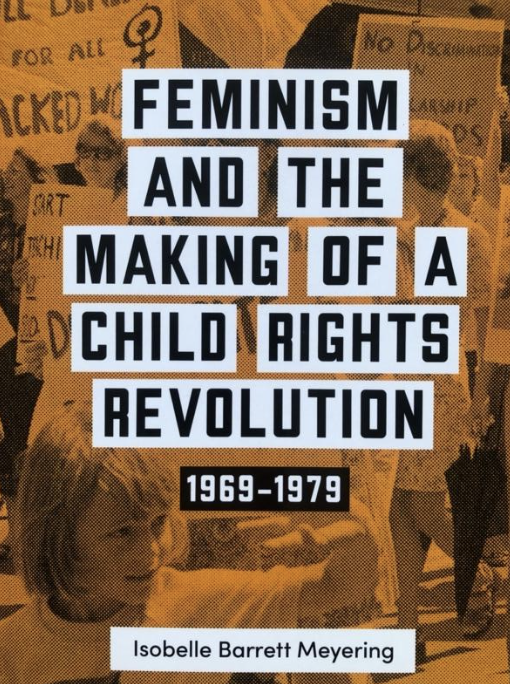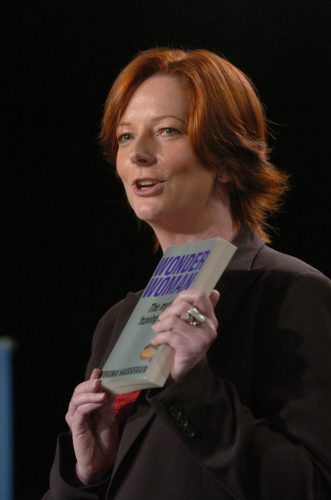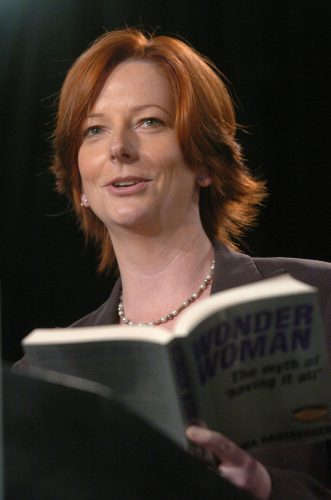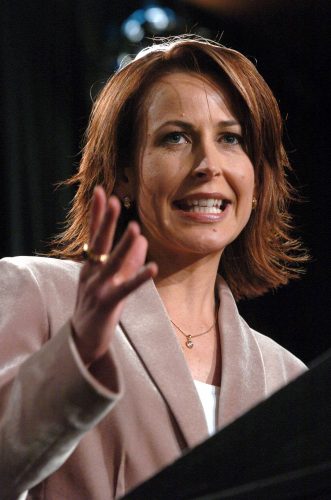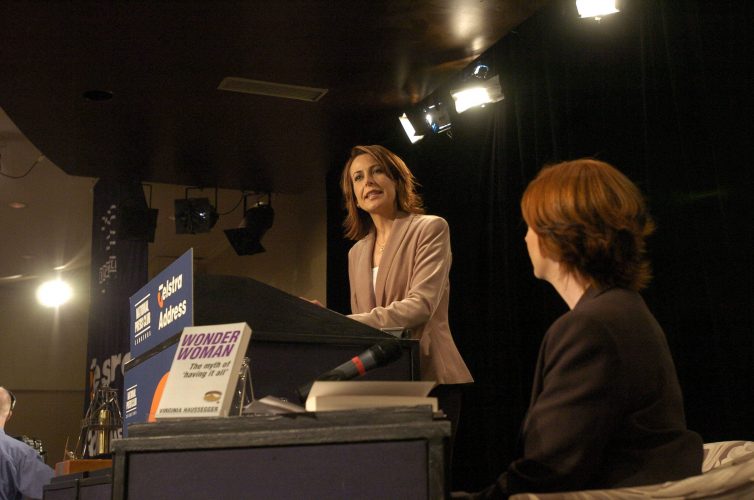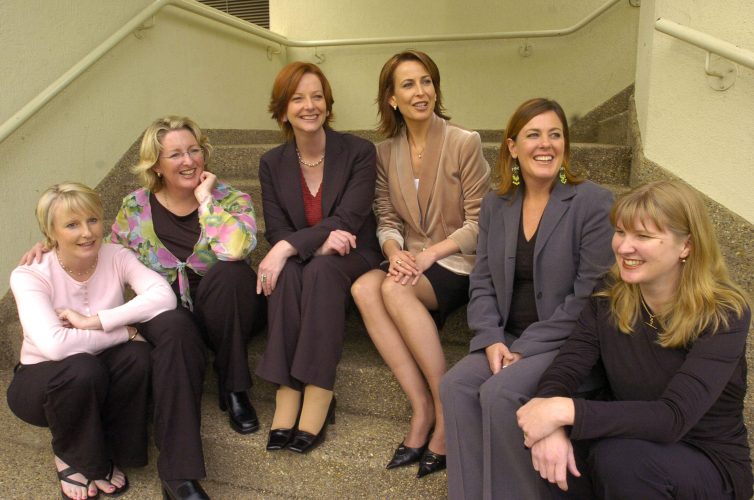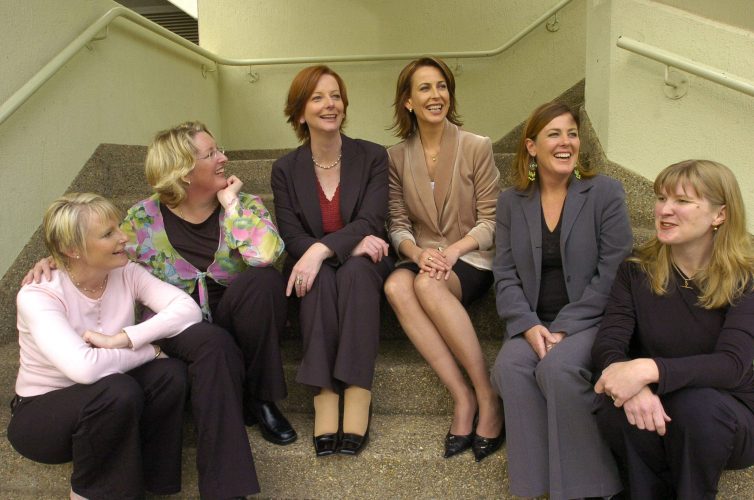With a title like this, of course I was going to dive into Feminism and the Making of a Child Rights Revolution 1969-1979, devouring it in a few sittings. A women’s rights revolution, sure. We’re still battling that one. But a children’s revolution? I was a child during this period. Did I miss something?
Barrett Meyering centres her focus on the radical push for children’s liberation as first envisaged by American feminist writer, Shulamith Firestone, in The Dialectic of Sex: The Case for Feminist Revolution (1970). Interestingly, that profoundly influential text is perhaps best known for its critique of motherhood and the author’s ‘feminist antinatalism’. Yet, as Barrett Meyering has rather expertly extracted, Firestone also unveiled a transformative thesis in her “sympathetic account of childhood oppression”; which is both surprising and until now, largely unexamined.
There is a wealth of rich and timely discussion that should emanate from this scholarly and meticulously researched book. But not necessarily about the author’s central theme of children. Rather, for me as a childless woman who has written about the vexed choices women born post second-wave feminism felt compelled to make between career and childrearing, the profound underlying current in this book is Barrett Meyering’s exposure of the blatant and divisive anti-motherhood feminist ideology that pervaded 1970’s Australia.
Thanks to the author’s deft handling of the complexities buried deep in feminist failure to reconcile the burden of motherhood with the emerging feminist view that “women’s and children’s oppression were deeply intertwined with one another,” the book travels an admirably balanced path. No easy task, as this subject matter inevitably flips the old adage: here the political is personal. How can it not be? Including for the author, who in the closing pages reveals she has just become a first-time mother.
I was a school student throughout the 1970’s, with progressive catholic nuns a dominant force in my upbringing. Somehow the tentacles of this critical and fierce feminist schism about motherhood reached my little world and influenced my formative thinking. I have never fully understood how, or why. But now, thanks to Barrett Meyering, I do. Feminist actions to include and influence children permeated schools, teachers’ unions and curriculums with a deliberation that, until now, has not been fully explored, or explained.
To say that Barrett Meyering’s book fills a critical knowledge gap in Australian feminist history is an understatement. However, it is not a call I make as historian or academic, but rather as a journalist. As such, I find myself once again lamenting the great divide between public discourse and the cloistered realms of academia. It is a great shame that this excellent book will not be widely read outside the academy. Driven by scholarly discipline, it is disappointing the author has not been free to loosen her approach, in order to not only build an engaging narrative voice – with mainstream appeal – but to include critical reflection on how the very issues raised around the impact of the 1970’s campaign for the liberation of children, particularly the unsettled approach to their sexual liberation, has such powerful resonance today.
Indeed, it almost seems odd that a book published in 2022, which includes careful and sensitive discussion of children’s sexual liberation – an agenda which included calls to reduce the age of consent and encourage sexual exploration among minors – that there is no reference to the current explosion of national interest in the sexualisation of children. The powerful advocacy of 2021 Australian of the Year, Grace Tame, has forced issues of child sexual grooming, coercion and child rape squarely into mainstream discourse and subsequently resulted in various policy reforms. Additionally, the highly successful online ‘Teach Us Consent’ campaign, led by high school graduate Chanel Contos, has recently resulted in unprecedented nation-wide government policy reform to sex education in schools. The reverberation of these actions, which incidentally are considered to have emanated from the mainstream and therefore never framed as ‘feminist actions’ as such, have fundamentally shifted the national conversation. It would be particularly useful to connect these developments to the fascinating and extensive history of Australian feminist action and liberation theory that Barrett Meyering has laid out here.
Whilst my own preoccupation with the pervasive anti-motherhood ideology that exercised the women’s liberation movement, and at times directly challenged broader feminist interests, propelled my reading of this excellent historical account, it’s perhaps
Barrett Meyering’s exceptionally detailed accounts of the activities and debates within women’s liberation collectives that fascinates most.
The intensity of the movement’s members and their dedication to reading, theorising and informing produced a plethora of reference material, including lively commentary for what was then clearly a burgeoning feminist press in the 1970’s. What a shame publications such as Mejane, Mabel, Refractory Girl, Sibyl no longer exist to document the progress of Australian feminist vision. Barrett Meyering does a wonderful job of honouring the mood and discourse of the times, whilst giving ample voice to liberationists in all their glory and disagreement. But, most importantly, she places children’s voices firmly on the record and rooted in Australia’s rollercoaster history of revolution.
This Review was first published in the Labour History Journal: Australian Society for the Study of Labour History.
